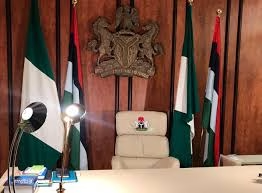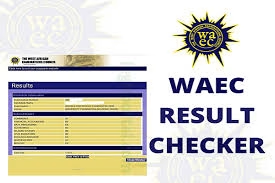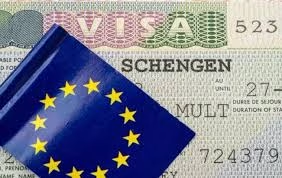
How Much Money Do I Need to Run for Office in Nigeria Nigerian Politics is Not for the Broke
let’s start with our Nigeria politics which is not just a game of ideas it is a game of power, influence, and most controversially, money. Many young Nigerians dream of becoming the next Peter Obi or rising through the ranks like Nyesom Wike or Nasir El-Rufai.
But there’s an unspoken reality that no one is talking about but here in whatsnextng we are dedicated to given you the right tips and steps to take: without money, your political ambition might die before it takes off. From primary elections to massive campaigns, running for office in Nigeria often requires millions sometimes even billions of naira.
So, how much money do you actually need to run for office in Nigeria? What does the cost include? Is there a way around spending extravagantly? Let’s break it down in with the following steps provided by our expert teams as follow;
1. Understanding the Nigerian Political Landscape
Before diving into the numbers, it’s important to understand why politics in Nigeria is expensive:
- Godfatherism: Many political candidates must align with political godfathers who expect financial loyalty and favors.
- Vote-buying culture: In many rural and urban areas, politicians exchange cash, food items, and even jobs for votes.
- Expensive nomination forms: Political parties make billions from candidates through ridiculously high form fees.
- Media visibility: You can’t win if no one knows you. Billboards, radio jingles, TV ads, and social media campaigns cost millions.
- Security logistics: You’ll need convoys, personal security, hotel bookings, and event management for every rally.
- Mobilization: Party delegates, local supporters, and traditional rulers expect mobilization allowances.
- Legal fees: Pre- and post-election legal battles are now a common part of Nigeria’s electoral process.
2. Key Political Positions and Their Estimated Campaign Costs
Let’s take a look at the realistic financial requirements for running for different offices in Nigeria:
President
- Nomination form (APC, PDP): ₦40 million to ₦100 million
- Primaries & Party Negotiations: ₦1 billion to ₦3 billion
- Campaigns across 36 states + FCT: ₦5 billion to ₦15 billion
- Media (TV, social, newspapers): ₦1 billion plus
- Election day logistics: ₦1 billion
Estimated Total: ₦8 billion to ₦20 billion
Governor
- Nomination form: ₦10 million to ₦50 million
- Primaries: ₦200 million to ₦500 million
- Statewide campaigns: ₦500 million to ₦2 billion
- Media & Mobilization: ₦100 million to ₦500 million
- Security & legal fees: ₦50 million to ₦100 million
Estimated Total: ₦800 million to ₦3 billion
Senator
- Nomination form: ₦2 million to ₦10 million
- Campaigns within Senatorial District: ₦100 million to ₦500 million
- Mobilization of delegates: ₦50 million to ₦100 million
- Legal & media: ₦30 million to ₦70 million
Estimated Total: ₦200 million to ₦700 million
House of Representatives
- Nomination form: ₦1 million to ₦5 million
- Campaign logistics: ₦50 million to ₦150 million
- Local publicity & materials: ₦10 million to ₦30 million
- Branded vehicles & gifts: ₦20 million to ₦40 million
Estimated Total: ₦80 million to ₦250 million
State House of Assembly
- Nomination form: ₦500,000 to ₦3 million
- Local government campaigns: ₦10 million to ₦50 million
- Banners, T-shirts, billboards: ₦5 million to ₦10 million
- ‘Stomach infrastructure’ (rice, cash, wrappers): ₦10 million
Estimated Total: ₦20 million to ₦80 million
3. Why Are These Figures So High?
Let’s be honest corruption and dirty politics fuel the cost of campaigns in Nigeria. Some key reasons include:
- Delegate manipulation: Party delegates are often bribed before primary elections. In some primaries, each delegate is given ₦1 million or more to vote for a candidate.
- Vote-buying on election day: Many candidates bribe voters with ₦1,000 to ₦10,000 per vote.
- Loyalty payments: Traditional rulers, youth leaders, and religious figures are “settled” to endorse candidates.
- Parallel campaign structures: Candidates maintain multiple offices, hire influencers, pay bloggers, and sponsor music videos.
4. Is There Any Way to Run for Office Without Being a Billionaire?
Yes but it’s extremely difficult. However, strategic alternatives include:
Running through a grassroots party
Avoid major parties like APC or PDP. Parties like Labour Party (LP), YPP, or SDP have lower form fees and may not require financial godfathers.
Build strong community presence first
If you’re popular locally, you can cut costs on campaign awareness. Focus on consistent service in your community before declaring political ambition.
Use social media wisely
Leverage platforms like Twitter (X), Facebook, Instagram, and TikTok to build a movement. Peter Obi’s 2023 campaign used social media effectively with youth power.
Volunteer-based campaigns
Recruit loyal volunteers instead of paid thugs. Let your message spread organically through word-of-mouth and grassroots activism.
Crowdfund your campaign
Many Nigerians are now open to crowdfunding honest candidates. Platforms like GoFundMe can help raise funds if your intentions are clear and transparent.
5. Should You Go Into Politics If You’re Not Rich?
This is the biggest debate among young Nigerians. While many feel discouraged, the truth is this: you don’t need to be rich to start, but you need money to compete. If you have:
- A good record
- A solid message
- Grassroots backing
- Digital visibility
…you can start small. Contest for councillor, chairman, or House of Assembly and grow from there. Many politicians started from local student union positions and climbed the ladder.
6. Is INEC Doing Anything to Reduce Campaign Costs?
The Independent National Electoral Commission (INEC) sets campaign spending limits, but enforcement is weak. For instance:
- Presidential candidate limit: ₦5 billion
- Governorship: ₦1 billion
- Senate: ₦100 million
- House of Reps: ₦70 million
- State Assembly: ₦30 million
However, most politicians ignore these limits because no one enforces them. Until campaign finance is regulated properly, money will continue to decide winners not merit.
7. The Future of Nigerian Politics: Time for a Revolution?
There is hope for a new era where money will not be the only voice in Nigerian politics. With a tech-savvy generation, awareness of corruption, and social media power, things are beginning to shift. But we must:
- Demand campaign finance reform
- Vote based on integrity, not cash
- Support credible candidates, even if they are unknown
- Stop collecting money to vote
If we don’t change the system, the system will keep using money to choose our leaders.
Conclusion: Nigeria Needs Leaders, Not Just Spenders
Running for office in Nigeria is expensive but it doesn’t have to stay that way. While it’s true that the political system is rigged in favor of the rich and powerful, change is possible. It begins with ordinary Nigerians rejecting the old ways and supporting value-based leadership.
You don’t need to have ₦500 million in your account before you dream of running for office. But you do need a strategy, message, community, and courage. Money will always play a role, but so will ideas, trust, and boldness.
FAQ
let’s explore some faq from readers all over wants answers to;
What is the cost of the presidential nomination form in Nigeria?
well according to our research, in major parties like APC and PDP, the presidential nomination form can cost between ₦40 million and ₦100 million.
. How much does it cost to run for governor in Nigeria?
From our reports we have it that running for governor can cost between ₦800 million to ₦3 billion, including nomination fees, campaigns, logistics, and media coverage.
. Is vote buying legal in Nigeria?
No, dont even think of that again because it is illegal under Nigerian law and INEC guidelines. However, it is still widely practiced during elections.
. What are INEC’s spending limits for campaigns?
INEC sets campaign limits such as:
- President: ₦5 billion
- Governor: ₦1 billion
- Senator: ₦100 million
- House of Reps: ₦70 million
- State Assembly: ₦30 million
However, enforcement is weak, and many candidates exceed these limits without consequences.
. How can I raise funds for my political campaign in Nigeria?
You can raise funds through:
- Personal savings
- Community support
- Crowdfunding platforms like GoFundMe
- Donations from supporters and well-wishers
. Which political parties have the cheapest nomination forms in Nigeria?
Smaller parties like Labour Party (LP), YPP, and SDP often have lower form fees compared to APC or PDP.
The real question is: Are you ready to build a new kind of politics in Nigeria or will you keep waiting for the next moneybag to “rescue” us?
Stay tuned to WhatsNextNG for more insights on politics, governance, and youth power in Nigeria.






